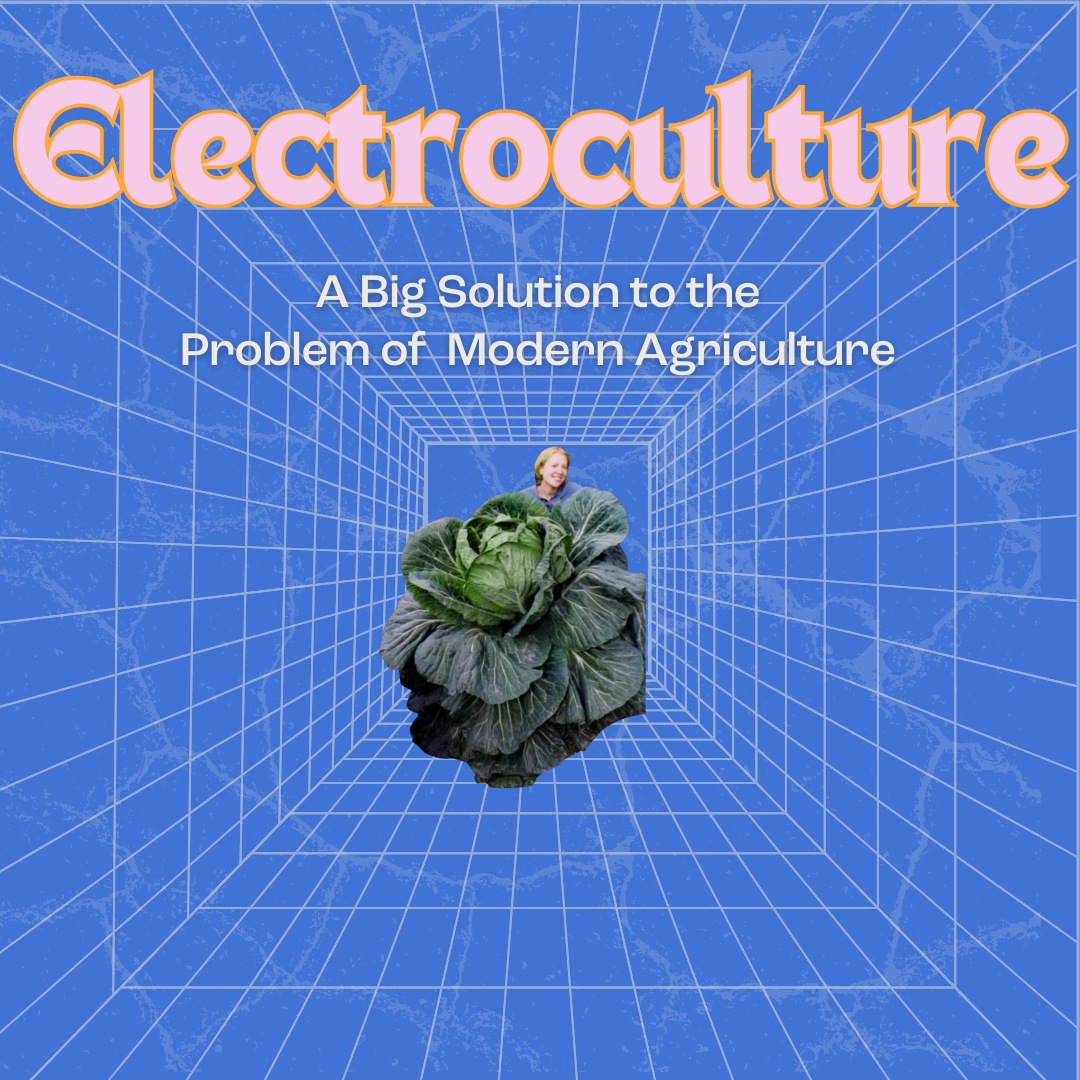
With the urgent need to adopt sustainable farming practices, an old technique called Electroculture is gaining renewed interest as an ally in the fight against climate change. Electroculture, which uses electricity to stimulate plant growth, offers small farmers a way to increase crop yields, improve resilience to pests and extreme weather, and reduce environmental impacts without the heavy reliance on chemical inputs.
Electroculture, which uses electricity to stimulate plant growth, offers farmers a way to increase crop yields, improve resilience to pests and extreme weather, and reduce environmental impacts without reliance on synthetic chemical inputs that have caused devastation to the ecology of this planet that sustains us.
Historically, Electroculture dates back centuries but was overshadowed by the rise in corporations rebranding their chemical waste as chemical fertilizers and pesticides to be sprayed on our food. Now, as these chemicals' detrimental effects on the environment come to the surface, researchers and small farmers alike are revisiting Electroculture's potential to foster plant health and productivity.
Recent studies support the notion that low-level electrical currents can boost plant metabolism, improve nutrient absorption, and enhance photosynthesis, which creates a plant with a less attractive frequency to invasive pests. The results overwhelming point to stronger plants with much higher yields and increased nutrient density. Furthermore, electroculture has been linked to a reduction in water usage, which is crucial for small farmers facing water scarcity and contamination.
Recent studies support the notion that low-level electrical currents can boost plant metabolism, improve nutrient absorption, and enhance photosynthesis, which creates a plant with a less attractive frequency to invasive pests. The results overwhelming point to stronger plants with much higher yields and increased nutrient density.
From a climate perspective, Electroculture offers multiple benefits. It can contribute to carbon sequestration through increased plant growth, reduce greenhouse gas emissions by cutting down the need for synthetic fertilizers, and create more resilient crop systems better equipped to handle the stresses of climate change. And from a human health perspective, the impact of food and herbal medicine that is nutrient dense cannot be overstated.
The adoption of Electroculture by small farmers does face some barriers, such as a lack of technical know-how and lots of information swirling around on the internet. To overcome these challenges, we are offer Electroculture Workshops in our Cultivation Lab to support your project.
